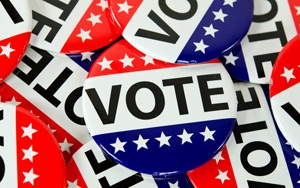 Email engagement and data platform Return Path has revealed that almost 20% of Republicans and Democrats remain undecided ahead of the Nevada and South Carolina primaries, and are subscribing to two
or more email newsletters from multiple candidates.
Email engagement and data platform Return Path has revealed that almost 20% of Republicans and Democrats remain undecided ahead of the Nevada and South Carolina primaries, and are subscribing to two
or more email newsletters from multiple candidates.
This Saturday marks the next presidential primary election.
Democrats Hillary Clinton and Bernie Sanders will compete for 43
available delegates in the Nevada Democratic Caucus, and Republican candidates will compete for 50 available delegates in the South Carolina Republican Primary.
The Nevada Republican Caucus
will follow on Feb 23, while the South Carolina Democratic Primary will follow on Feb 27.
Tom Sather, senior director of research at Return Path, says that 18% of Sanders’ email
subscribers also subscribe to Clinton’s email campaigns. The data comes from Return Path’s Consumer Network of over 2 million subscriber emails.
“The shared audience prefers
Clinton over Sanders with Clinton’s email campaigns seeing a 26% higher read rate than Sanders,” says Sather. “Clinton’s emails were ignored slightly more than Sanders’,
however, with 12% of her email campaigns being deleted without read compared to only 9% of Sanders’ campaigns.”
Sather asserts that Clinton’s higher inbox performance
is partly due to her higher inbox placement rates. Some 95% of all Clinton’s emails sent were delivered to the inbox, compared to only 88% of Sanders’ emails.
Republican contender
Donald Trump’s high email performance is also partly due to the fact that his emails are not being labeled as spam, according to Sather. Ninety-five percent of Trumps emails are delivered to an
inbox, compared to Ted Cruz’s measly 47% and Marco Rubio’s 51% inbox placement rates.
Interestingly, one in five Republicans are also still undecided. Fourteen percent of Trump
supporters also subscribe to Rubio’s email campaigns and 19% of Trump supporters also subscribe to Ted Cruz’s email list.
“Cruz and Rubio also came out on top for email
list size,” says Sather. “Cruz has a subscriber list 9.4x larger and Rubio amassed a list 4.8x larger than Trump’s. But in this case, quality ‘trumps’
quantity.”
Trump currently leads the Republican Party with 17 delegates compared to Cruz’s 11, while Marco Rubio is close behind with 10 delegates. Clinton currently leads the
Democratic Party with 394 delegates, while Sanders trails with 44.
There are already several online petitions started by Sanders supporters to alter the super-delegate system, Politico reports.
March 1 marks Super Tuesday (also dubbed the SEC Primary), when a dozen states
will hold their presidential primary, per the New York Times. A total of 641
delegates are available for Republican candidates, while Democrats will vie for 1,034 available delegates. The majority of Super Tuesday primaries are proportional, meaning delegates will be awarded
based on the percentage of votes each candidate receives.
1,237 delegates are needed for the Republican nomination, while 2,382 delegates are needed for the Democratic nomination.